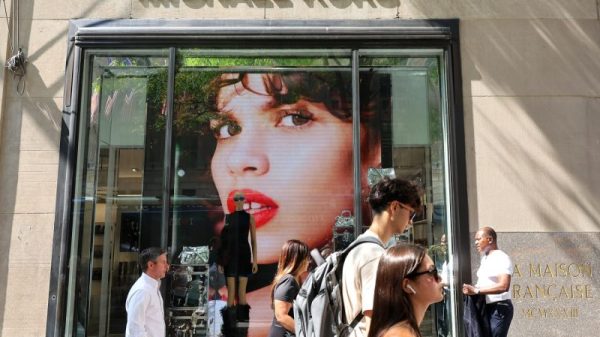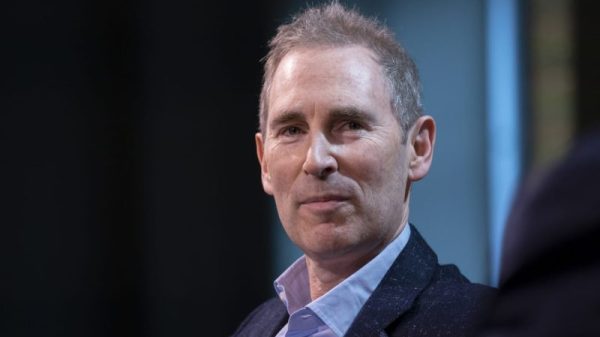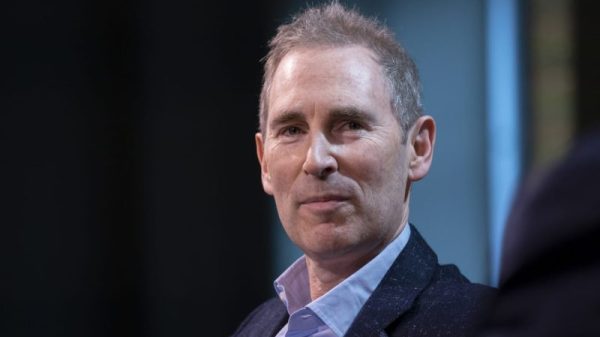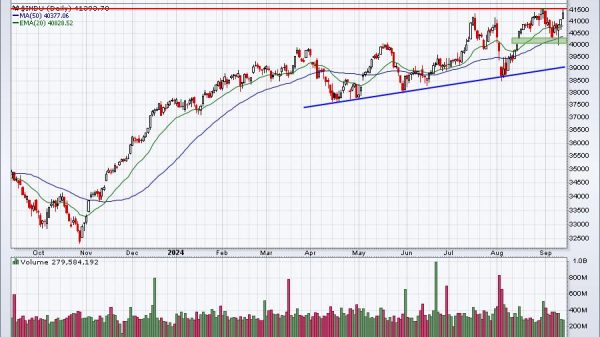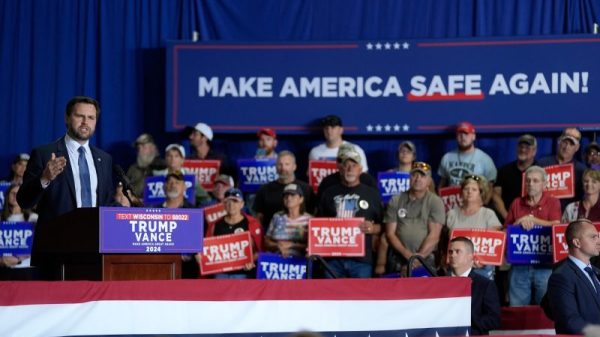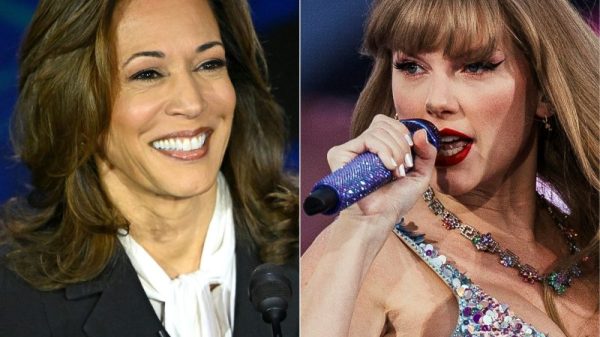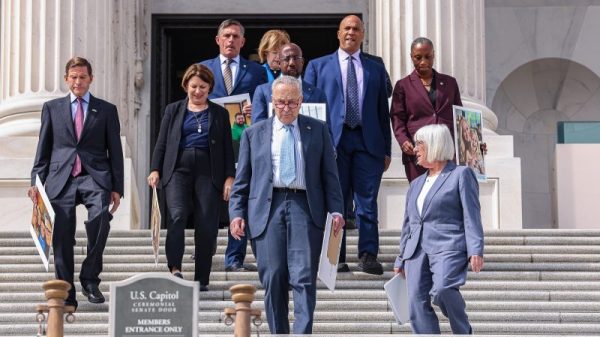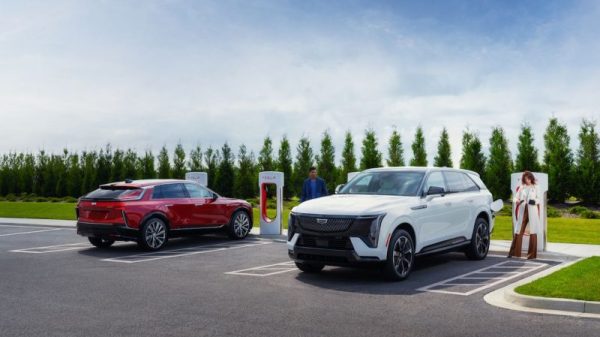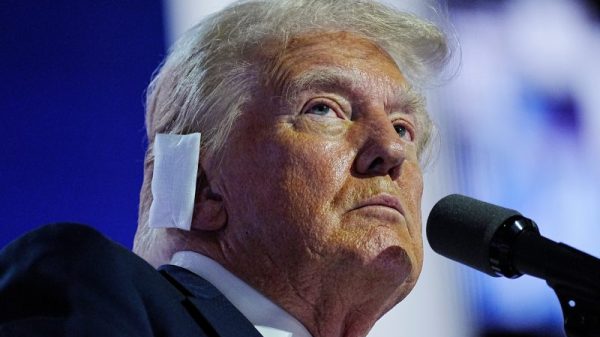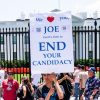
A few years ago, I spoke with Republican pollster Patrick Ruffini as part of research I was doing for my book. We were discussing how the major parties’ coalitions were evolving as America’s demography changed, with Ruffini expressing the idea — later documented in his own book — that the Republican Party could be boosted by a new, multiracial coalition.
But he also made a point about Donald Trump that has stuck with me since.
“Trump,” he said, “went I think as far as you can go in terms of appealing to things many people said were racist and many people said were dog-whistle politics. And it didn’t seem to have any impact whatsoever on his standing with these voters.”
“So either those things actually were not what people said they were,” Ruffini continued, “or there is sort of a certain conservatism that’s animating this under the surface.”
Ruffini’s first point is certainly true. When Trump ran in 2016, Black Americans opposed him by an 85-point margin, according to analysis of the electorate conducted by the Pew Research Center. Hispanic Americans opposed him by a 38-point margin.
In 2020 — a year in which racial politics were at the center of the national conversation following George Floyd’s murder by a Minneapolis police officer — Trump’s position improved with those groups. Among Black voters, the improvement was incidental. Among Hispanics, though, it was robust.
And, to Ruffini’s point, 2020 wasn’t simply a referendum on the Black Lives Matter movement. It was also inherently an adjudication of all of Trump’s other comments about race and racism since he became president, if not before: His vulgar disparagement of immigrants from Africa and the Caribbean. His constant portrayal of Muslims and Hispanic immigrants as dangerous. His insulting responses to non-White legislators and their districts. His embrace of monuments to the Confederate South and his both-sides treatment of the white nationalist rally in Charlottesville.
Perhaps some or most of these things, as Ruffini suggested, were not as brazen as portrayed by outside observers. But it’s hard to see how they might be particularly effective enticements to members of the targeted groups.
Where Ruffini was less correct was in his assessment that Trump went “as far as you can go” in his efforts to generate or amplify racist rhetoric. That has become increasingly clear over the past few weeks as the November general election approaches.
At the end of August, for example, Trump shared an image on his Truth Social account showing a group of men wearing traditional Muslim attire burning an American flag. “Meet your new neighbors,” text overlaying the image reads, “if Kamala wins.”
Another Truth Social post last week showed an image of heavily tattooed Hispanic men. “Your new apartment managers,” the accompanying text reads, “if Kamala’s re-elected.”
That image appeared to be a response to claims circling in the right-wing conversation — a universe driven by Fox News, fringe-right websites, and both Truth Social and X — about an apartment complex in the suburban Denver area being taken over by a Venezuelan gang. The reality, as is always the case, was far more nuanced and less apocalyptic, but the false claims quickly led to an explicitly racist and anti-immigrant backlash against local residents.
Trump and his campaign were also eager to pick up on a story that circulated widely on the right on Monday: that Haitian immigrants in Ohio were stealing pets and eating them. There’s no proof of this happening, and the presented “evidence” is incomplete or misleading. But the claims aren’t surprising, given that such allegations are a long-standing anti-immigrant, racist trope.
It’s not as though Trump relies on such incidents to fearmonger about immigrants. Another Truth Social post on his account shows a woman walking down a dark alley, a shadowy figure holding a knife walking behind her. “No one is safe with Kamala’s open border,” the text reads, suggesting that the knife-wielding man is an immigrant and that he’s part of what Trump claims is a “migrant crime” wave — a purported surge in violent crime driven by immigrants that doesn’t show up in actual measures of crime. It’s a surge that, in Trump’s presentation, almost always involves Hispanic or Muslim or Black people and not White ones.
There are plenty of other examples of Trump’s dubious assertions about race, such as his claim that having been arrested makes him more appealing to Black voters. A Washington Post-Ipsos poll released Monday found that about 7 in 10 Black Americans have strongly unfavorable views of Trump, that two-thirds think his policies would hurt Black people, and that about 7 in 10 believe that Trump does not understand the experiences of Black Americans well at all. Three-quarters of Black Americans told the pollsters that they believe Trump is biased against Black people.
Trump’s approach seems to mirror that old joke from internet personality Dril: “turning a big dial [that] says ‘Racism’ on it and constantly looking back at the audience for approval like a contestant on the price is right.” Trump recognizes that hostility to immigrants and appeals to racism help motivate his base to vote. So he turns the dial. He turned the dial before the 2016 election and still won the presidency. He turned it a bit more as president and gained ground among non-White voters. He’s turning it more now and running even with Vice President Kamala Harris — the daughter of Jamaican and Indian parents — in national and state polling.
The two questions that follow are whether it’s possible for him to turn it too far and what happens if he does.


